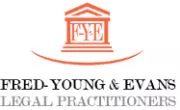Applicable Law
The Companies and Allied Matters Act (CAMA) law regulates company practice in Nigeria. Part A of CAMA deals with various types of company structures, eligibility, and procedure for registration and rules for operation. The regulatory body in charge of implementing the provisions of the CAMA is the Corporate Affairs Commission (CAC) with its head office at Abuja-Federal Capital Territory.
Eligibility
Any 2 or more persons may form and incorporate a company by complying with the requirements of CAMA in respect to registration of company. However a person is prohibited from joining to form a company if;
- He is less than 18 years; or
- Of unsound mind and has been so found by a court in Nigeria or elsewhere; or
- An undischarged bankrupt; or
- A corporate body in liquidation.
Documents for Registration of Company
Documents to be filed at CAC for incorporation include;
- The Memorandum and Articles of Association (MEMART) which complies with the provision of CAMA;
- A statement of the authorized share capital signed by at least one director (Form CAC2);
- The particulars of the company secretary (Form CAC2.1);
- The notice of the address of the registered office of the company and the head office if different from the registered office. The address must be a Nigerian address (Form CAC3);
- A statutory declaration in the prescribed form by a legal practitioner of due compliance (Form CAC4);
- A statement in the prescribed form containing the list and particulars of at least 2 directors together with their consent as first directors of the company (Form CAC7);
Procedure
(a) Conduct name availability search by submitting 2 names for availability check. The name will either be denied if it is similar to an existing name or approved for a period of 60 days by CAC.
(b) Prepare the MEMART stating the company name, registered address, share capital, objects of the company and subscribers.
(c) Fill the CAC forms;
(i) Form CAC 1- availability and reservation of name
(ii) Form CAC 2- statement of share capital and return of allotment of shares
(iii)Form CAC 2.1- particulars of secretary
(iv) Form CAC 3- notice of registered address
(v) Form CAC 4- declaration of compliance
(vii)Form CAC 7- Particulars of directors
(d) Pay the relevant fees and submit 2 copies of MEMART and CAC2 for stamp duty.
(e) Pay registration fees.
(f) File 2 stamped copies of the MEMART and Form CAC2, the other CAC Forms, a means of identification of the directors, their qualification (if the company is to carry out a specialized business), notice of reservation, receipts of payment of the relevant fees and a copy of the means of identification of the accredited agent.
(g) On completion of registration CAC will issue a Certificate of Incorporation showing the name of the company, date of incorporation and the registration number. A certified true copy of the MEMART and CAC Form 2 will also be issued to the accredited agent who filed the documents.
Duration
The registration usually takes a period of 5-7 working days.
Effect of Registration
As from the date of registration stated in the Certificate of Incorporation, the subscriber of the MEMART together with such other persons who may, from time to time hold shares in the company shall be members of the company. The company becomes a body corporate by the name contained in the MEMART, capable of exercising all the powers and functions of an incorporated company including owing its seal and property, and suing and being sued in its corporate name.
The content of this article is intended to provide a general guide to the subject matter. Specialist advice should be sought about your specific circumstances.
We operate a free-to-view policy, asking only that you register in order to read all of our content. Please login or register to view the rest of this article.


